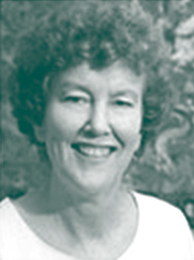Mary Evelyn Tucker
September 2012 – January 2013 Currie C. and Thomas A. Barron Visiting Professor in the Environment and the Humanities and Visiting Lecturer in Religion and the Princeton Environmental Institute at Princeton University
Biography
 Mary Evelyn Tucker is a senior lecturer and senior research scholar at Yale University where she has appointments in the School of Forestry & Environmental Studies as well as the Divinity School. She is a co-founder and co-director with John Grim of the Forum on Religion and Ecology. Together they organized a series of ten conferences on World Religions and Ecology at the Center for the Study of World Religions at Harvard Divinity School. They are series editors for the ten volumes from the conferences distributed by Harvard University Press. Tucker is also research associate at the Reischauer Institute of Japanese Studies at Harvard. In 2011, she completed the Journey of the Universe with Brian Swimme, which includes a book from Yale University Press, a film on PBS, and an educational series of interviews. She is also the author of numerous publications including “Worldly Wonder: Religions Enter Their Ecological Phase” (Open Court Press, 2003), “Moral and Spiritual Cultivation in Japanese Neo-Confucianism” (SUNY, 1989), and “The Philosophy of Qi” (Columbia University Press, 2007). She is a member of the Interfaith Partnership for the Environment at the United Nations Environment Programme (UNEP) and the Earth Charter International Council. She received her Ph.D. from Columbia University.
Mary Evelyn Tucker is a senior lecturer and senior research scholar at Yale University where she has appointments in the School of Forestry & Environmental Studies as well as the Divinity School. She is a co-founder and co-director with John Grim of the Forum on Religion and Ecology. Together they organized a series of ten conferences on World Religions and Ecology at the Center for the Study of World Religions at Harvard Divinity School. They are series editors for the ten volumes from the conferences distributed by Harvard University Press. Tucker is also research associate at the Reischauer Institute of Japanese Studies at Harvard. In 2011, she completed the Journey of the Universe with Brian Swimme, which includes a book from Yale University Press, a film on PBS, and an educational series of interviews. She is also the author of numerous publications including “Worldly Wonder: Religions Enter Their Ecological Phase” (Open Court Press, 2003), “Moral and Spiritual Cultivation in Japanese Neo-Confucianism” (SUNY, 1989), and “The Philosophy of Qi” (Columbia University Press, 2007). She is a member of the Interfaith Partnership for the Environment at the United Nations Environment Programme (UNEP) and the Earth Charter International Council. She received her Ph.D. from Columbia University.
While at Princeton
The joint appointments of Mary Evelyn Tucker and John Grim with PEI and the Department of Religion allowed for enhanced exploration at Princeton of the intersection between the fields of religion and ecology. Tucker and Grim gave several presentations and generated numerous conversations on the topic of religion and ecology. This included screening their Emmy Award-winning film, Journey of the Universe, a film that draws together scientific discoveries in astronomy, geology, biology, ecology, and biodiversity with humanistic insights. They also co-taught a course entitled Religion, Ecology and Cosmology illustrating how religion, spirituality, ethics and values can make important contributions – alongside science – to address complex ecological issues.



